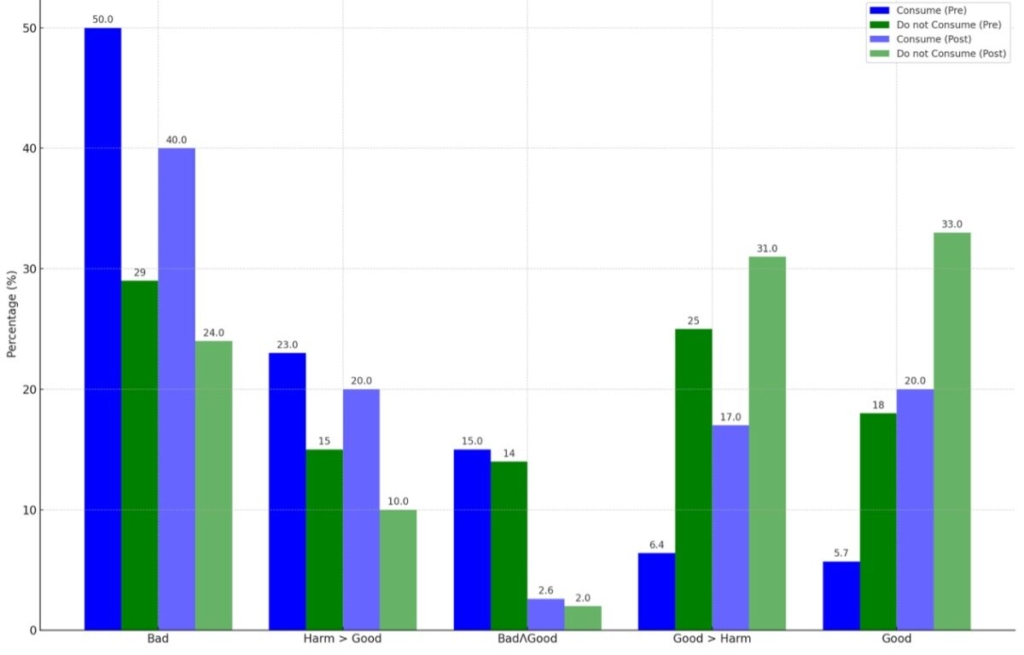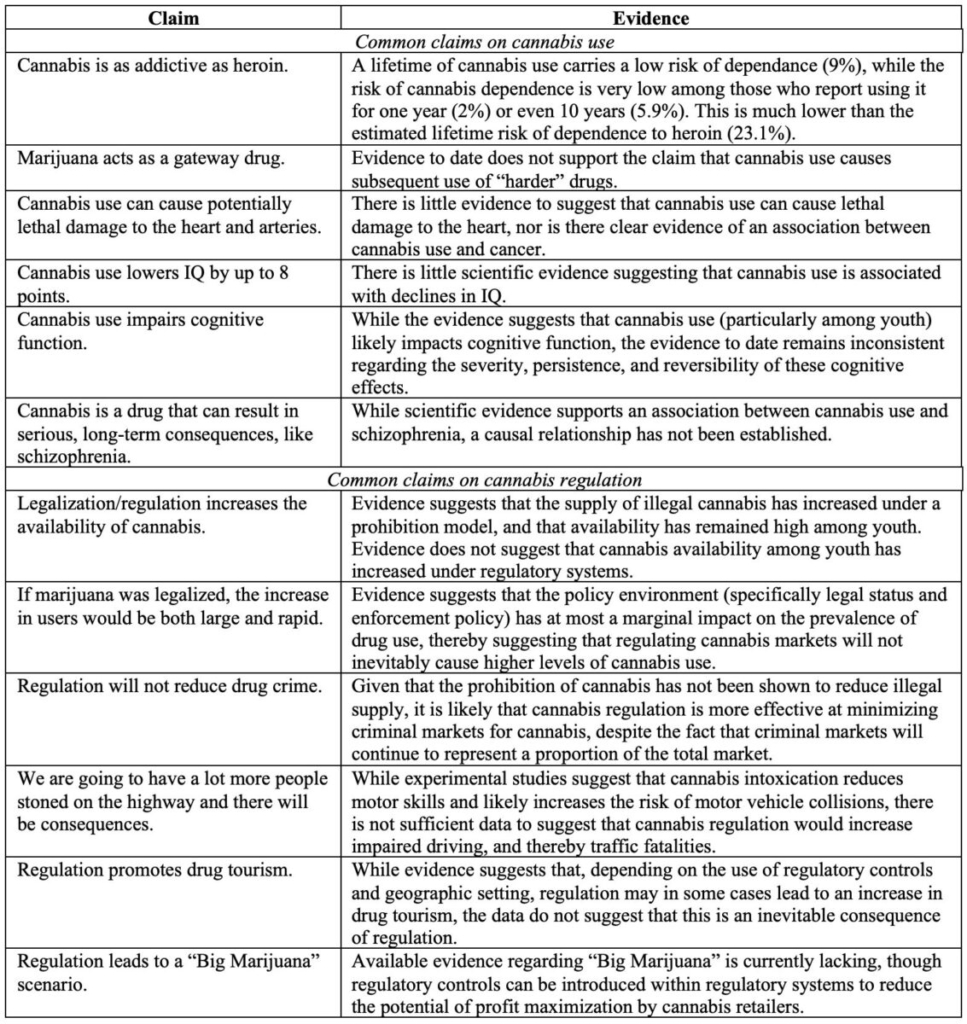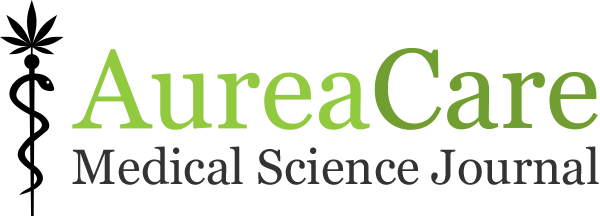Introduction & Methodology
The recently published study focuses on understanding the prevalence and attitudes towards cannabis use in Sinaloa, Mexico. The research methodology involved a pre-test and post-test questionnaire and intervention with scientific information. The survey covered the demographics, frequency of cannabis use, and attitudes towards cannabis.
Demographics & Consumption
The sample comprised 3162 participants, both men and women, with varying education levels. About 20.7% identified as active cannabis consumers. Most users consumed cannabis recreationally (74.3%), while a significant portion (25.7%) used it for medicinal purposes.
Attitude Changes
The intervention significantly shifted attitudes across different demographics. For instance, those with lower educational attainment tended to view cannabis more positively after the intervention, while those with higher educational levels shifted towards a more neutral stance. Age also played a role; younger people had a more positive shift, while older people moved towards neutrality.

Shifts in Public Attitude Towards Cannabis: A Comparative Analysis of Pre- and Post-Educational Intervention Among Consumers and Non-Consumers in Sinaloa. Significant changes in perception underscore the power of evidence-based education. (p < 0.001, Pearson’s Chi-squared Test).
Impact of Education and Age
Both age and educational background played a crucial role in shaping attitudes. The younger and less-educated demographics shifted towards a more favorable view of cannabis after the intervention, while those who are older and more educated moved towards a more neutral position.
Results & Implications
The study found that providing accurate scientific information had a pronounced impact on changing attitudes about cannabis. This is significant for policy decisions, especially in a region with a complicated history regarding drug trafficking and use.
Limitations
The study acknowledges its limitations, including potential biases like sampling, recall, and social desirability. It also suggests that future research could benefit from incorporating diverse sources and methodologies for a more comprehensive understanding.
Policy Implications
Given the changing landscape of cannabis regulations, the study emphasizes the importance of evidence-based policies. It suggests that a well-informed public could contribute to more effective and compassionate drug policies.
Editor’s comments:
The study conducted in Sinaloa, Mexico, stands as a compelling testament to the transformative power of evidence-based educational outreach, particularly in a region fraught with repressive drug policies. It’s noteworthy how effectively scientific information served as a “corrective agent,” recalibrating attitudes and dispelling myths surrounding cannabis. The intervention functioned much like a pharmacological agent in a system skewed by misinformation, providing a nuanced understanding that goes beyond mere acceptance or rejection of cannabis use.
However, the study also raises intriguing questions about the scalability and adaptability of such interventions. The pronounced impact observed in Sinaloa could be partially attributed to the region’s historical context—marked by draconian drug policies—which provided ample room for attitude adjustments. In regions with more liberal drug policies, one might encounter a “ceiling effect,” where already favorable public opinion leaves limited room for significant swings in perception. Moreover, in such well-informed environments, people may engage more critically with new evidence, leading to more nuanced shifts that are harder to quantify but nonetheless significant.
Furthermore, the study underlines the necessity of demographic-specific approaches to maximize intervention efficacy. Just as in precision medicine where treatments are tailored to individual physiological responses, public health education too must be customized to resonate with various age and educational strata. Overall, the Sinaloa study underscores the cardinal role of evidence-based education in shaping public opinion and policy, while also hinting at the complexities involved in translating this success across diverse sociopolitical landscapes.
Stefan Broselid, Ph.D.
Editor-In-Chief, Aurea Care Medical Science Journal
Reference:
- Camberos-Barraza J, Osuna-Ramos JF, Rábago-Monzón ÁR, et al. Scientific facts improve cannabis perception and public opinion: results from Sinaloa, México. Sci Rep. 2023;13(1):17318. Published 2023 Oct 12. doi:10.1038/s41598-023-44185-5
Educational Intervention: The Evidence-Based Curriculum Employed in the Study
State of the evidence: cannabis use and regulation / Using evidence to talk about cannabis


